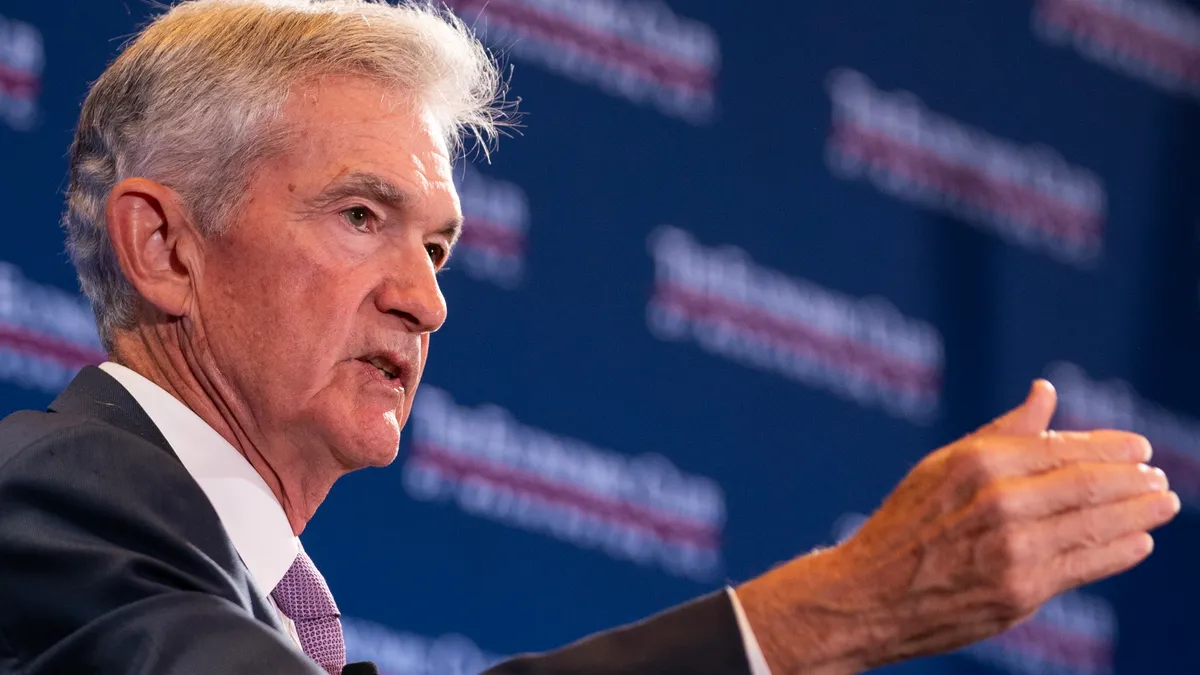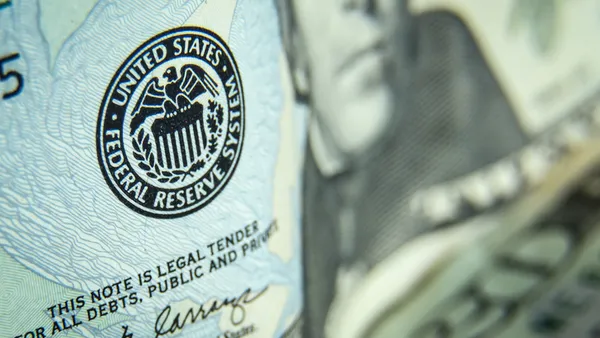Dive Brief:
- U.S. merger-and-acquisition activity remains on track to accelerate in 2025, despite signals from the Federal Reserve that it may slow the pace of trimming interest rates next year, a PricewaterhouseCoopers partner said.
- The Big Four accounting firm predicted in a recent report that M&A activity will speed up next year due to “declining interest rates, large amounts of dry powder, the need for business model reinvention and shifting regulatory priorities.” The Fed’s latest stance doesn’t “materially” impact that assessment, according to PwC U.S. Deals Clients and Markets Leader Liz Crego.
- “We are still anticipating that the Fed is going to cut interest rates, so it’s still on the same trajectory,” she said in an interview. “They are going in the right direction, albeit maybe not fast enough for some.”
Dive Insight:
The Fed cut the main interest rate by a quarter percentage point Wednesday in its third straight reduction since September. At the same time, Fed Chair Jerome Powell said monetary policy is now “at or near a point at which it will be appropriate to slow the pace of further adjustments.”
While the Fed’s move represents a mixed bag for dealmakers, it at least provides the market with more certainty, Crego said.
“It’s very important to know what’s on the agenda and what’s planned,” she said.
The projected surge in M&A deals in 2025 comes after a year of “inconsistent recovery” due in part to uncertainty leading up to the November election, according to PwC’s recent analysis.
During the first 11 months of 2024, there were 9,780 deals valued collectively at $1.05 trillion, according to the report. Both volume and value were up slightly compared to the same period a year ago, when there were 9,653 deals for $1.02 trillion.
“While caution over the past year was understandable and consistent with similar election cycles, PwC expects the recovery to pick up now that some sources of uncertainty have been resolved,” the report said.
Despite a clearer post-election outlook, there is still the risk of policies under President-elect Donald Trump that could result in an “extremely volatile” environment for dealmaking, PwC said.
“The incoming Trump administration is intent on shaking up the status quo, including nominating regulators with non-traditional backgrounds,” the report said. “It has telegraphed a willingness to significantly alter US global trade and security policies, especially through tariffs.”
Industries such as oil and gas may benefit from significant deregulation, but sectors such Big Tech may be scrutinized more closely, according to the analysis.












